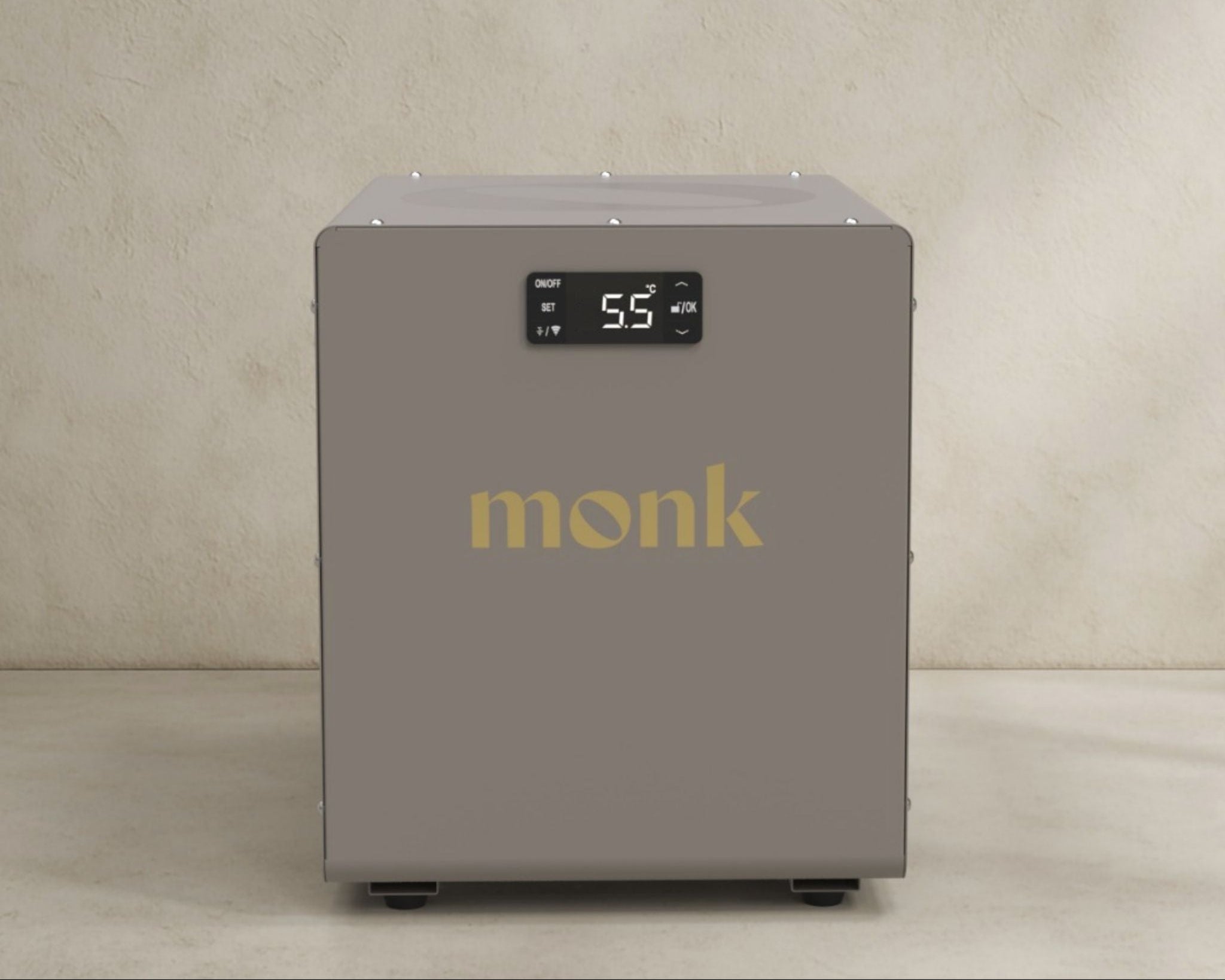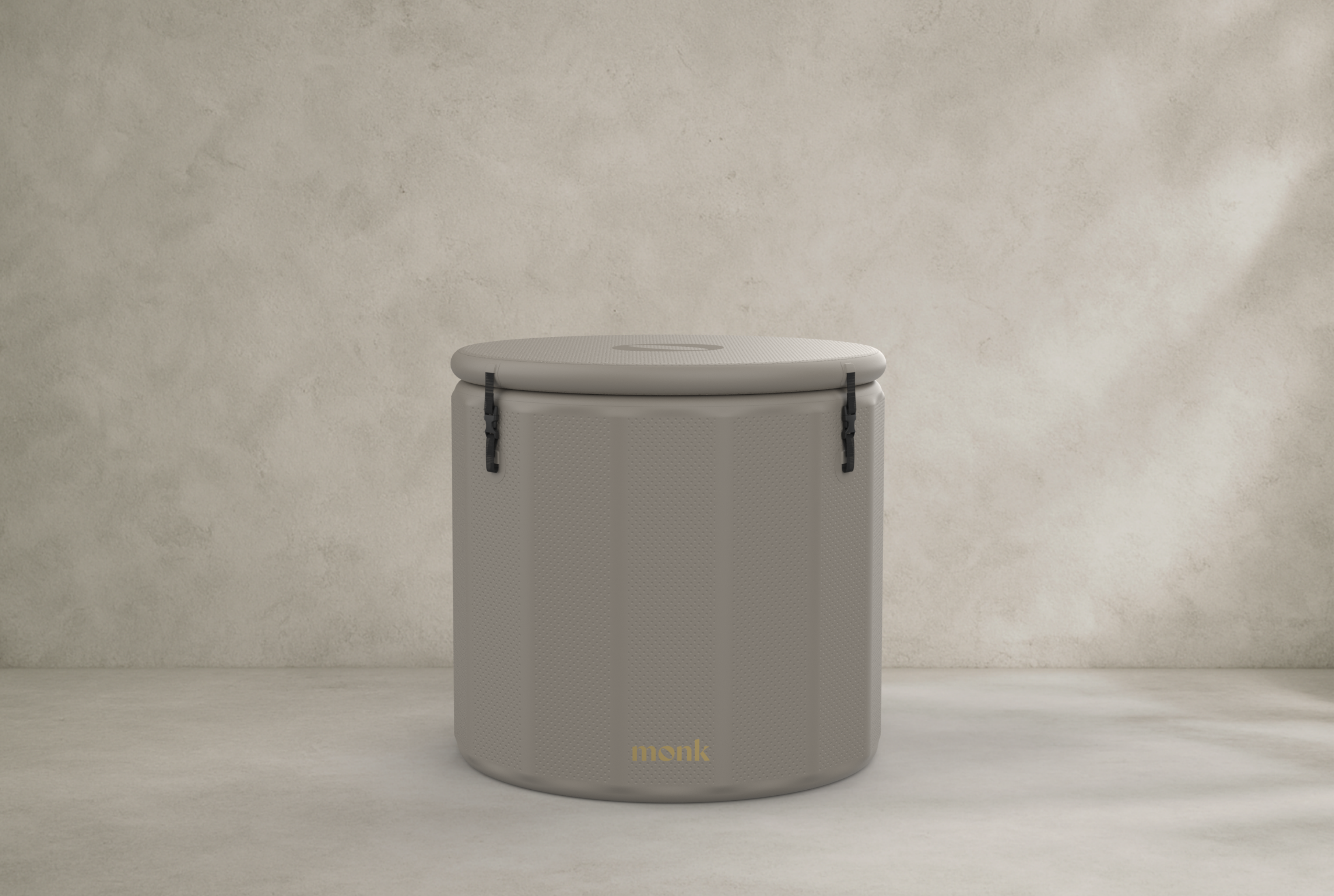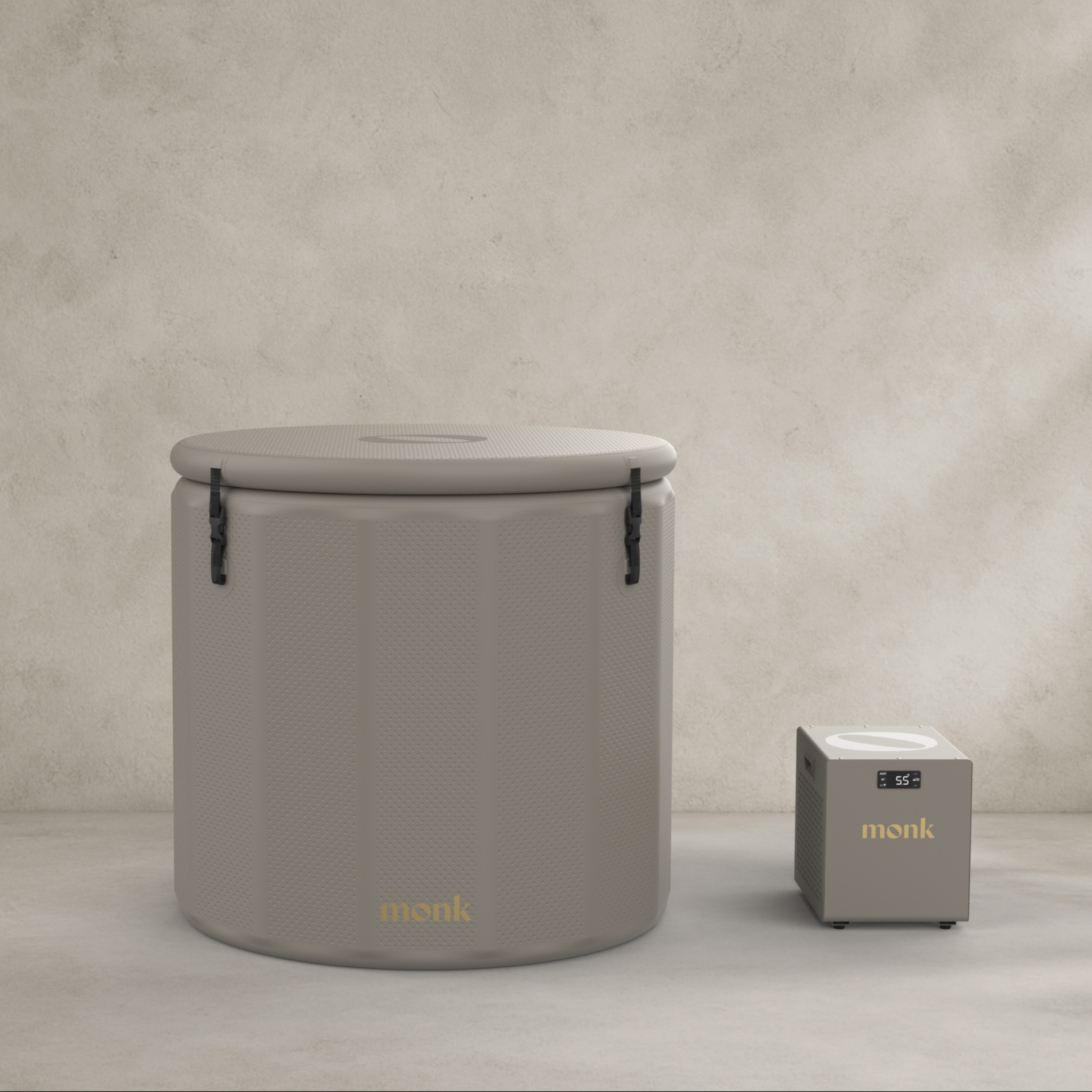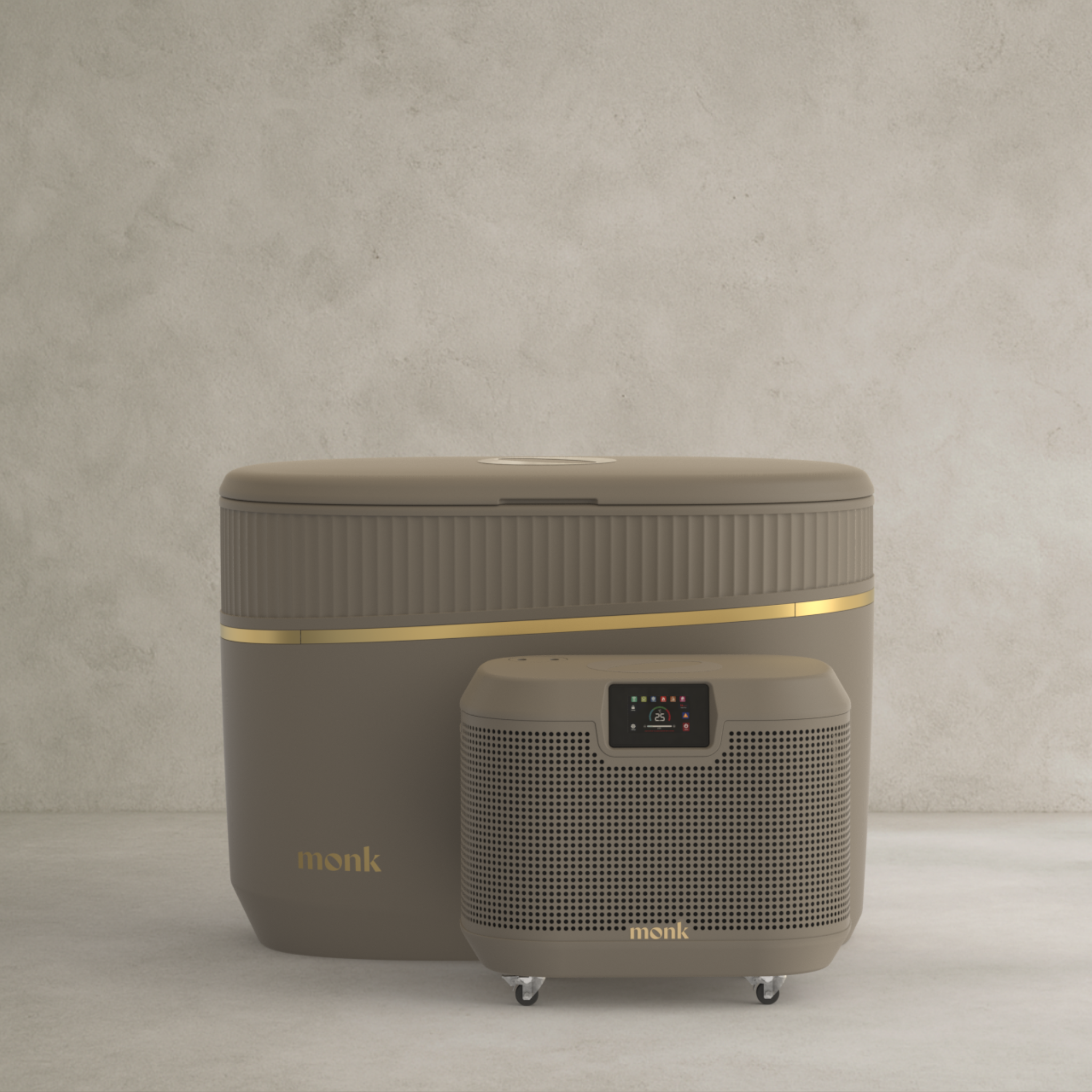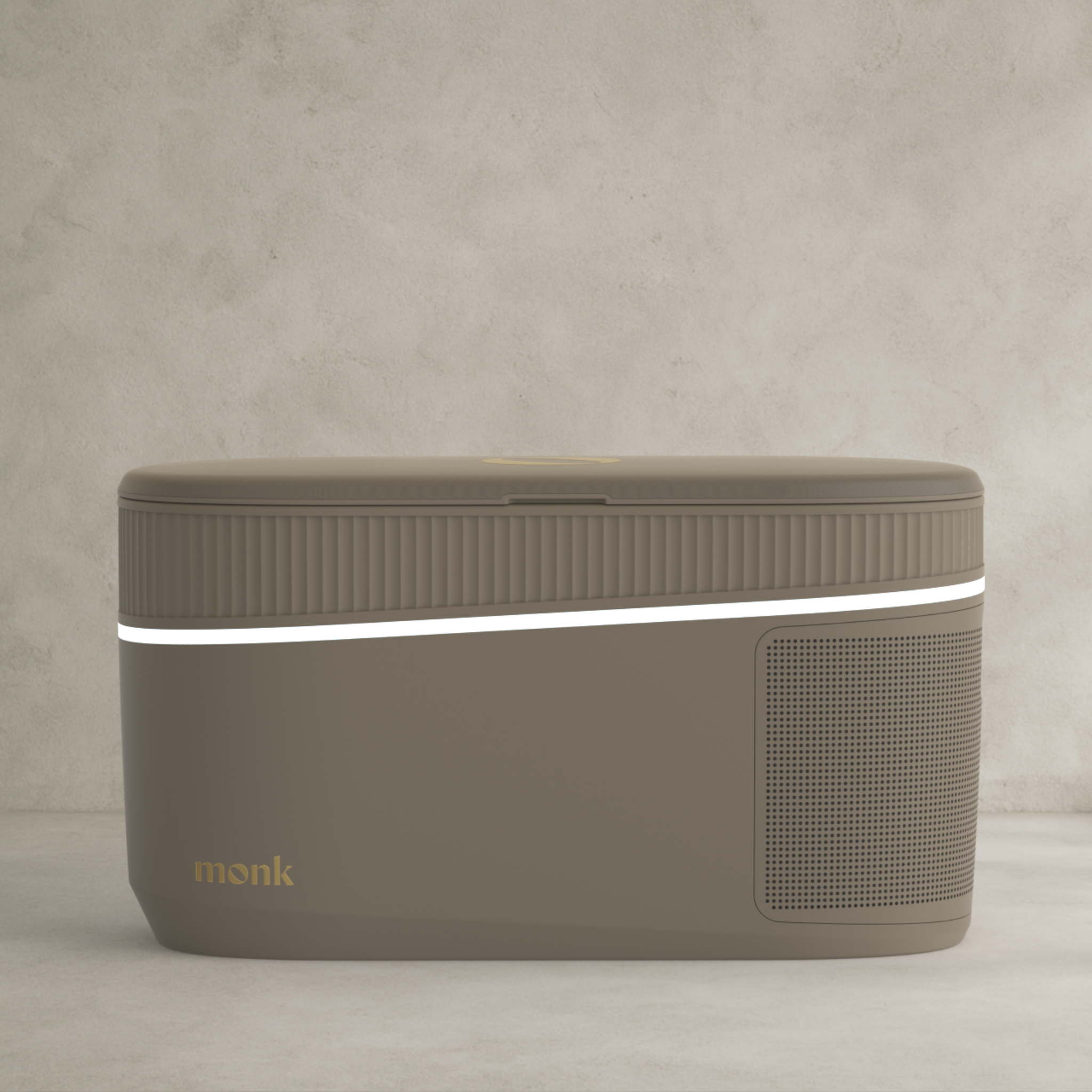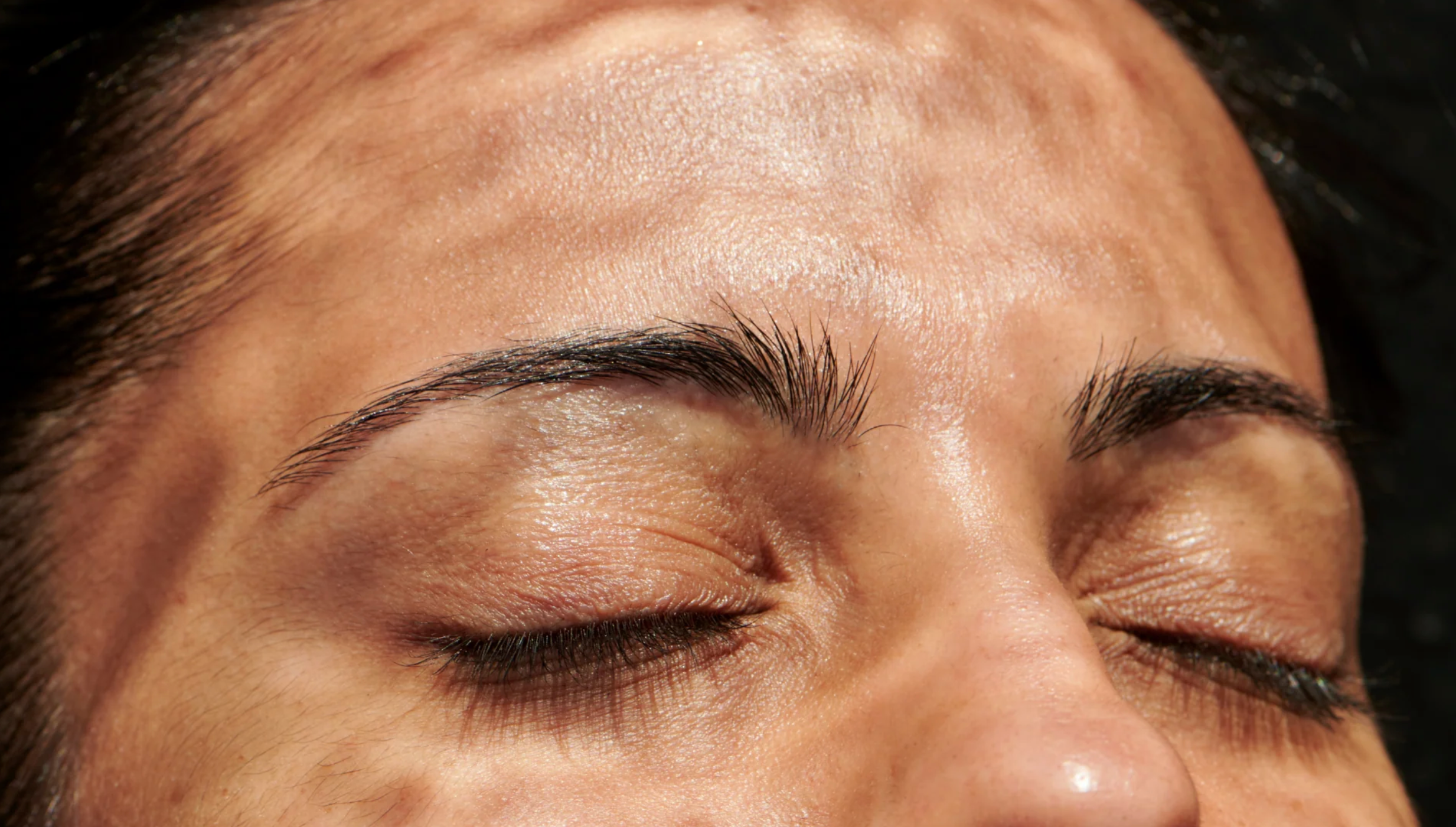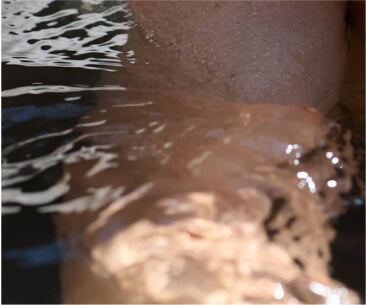Mental health benefits of cold water therapy
The events of the last few years have brought our health into sharp focus, not least our mental health. But even before then, many of us were dealing with a crisis of overwhelm, low mood and fatigue. Depression is the most prevalent mental health disorder in the world, as well as the most disabling. Cases of anxiety have almost doubled since the pandemic began. 31% of UK adults report suffering from insomnia, and 48% say that lack of sleep has a negative impact on their mental health. There are more people using antidepressants, more people drinking to cope, and more cups of coffee being consumed, which doesn’t help us get quality sleep. It sounds bad, and it is. But there was some good to come out of the lockdowns.
When it became possible to leave home for exercise, some took to the sea (or their local pond) to move their bodies and treat their minds. Searches for ‘wild swimming’ increased 94% between 2019 and 2020 as people sought out nearby spots where they could immerse themselves and reconnect with nature, and many now report the practice being central to their mental health. But do you need to be out in the open to reap the mental health benefits? And what happens when we plunge into cold water that’s so good for our brains?
Cold Shock Response and Adaptation
After you plunge into cold water, there’s a short-term and a long-term benefit for our mood. In the short-term, we get the ‘cold shock response’ and in the long-term, we get adaptation.
With the initial shock, adrenaline starts to course through your body. Your heart races. You panic. Although you can’t sense it, your blood pressure is skyrocketing, and glucose and fats are being released into your bloodstream, providing an energy source should you need to make a quick escape. This is the classic ‘fight-or-flight’ response. The process also activates electrical nerve impulses which extend from the brain to the nervous system, and demonstrate similar effects to antidepressants.
Adrenaline isn’t the only hormone at play after a cold plunge. A surge of beta-endorphin hormones in the brain provides pain relief and gives a sense of euphoria, while norepinephrine, a hormone and neurotransmitter, is released into your blood, improving your focus, attention and mood. It’s also the primary driver behind the anti-inflammatory effects of cold water therapy, and the benefits it can have for people with chronic stress, anxiety and depression.
When stressful events are rare and isolated, inflammation is a healthy, protective response by our immune system. But in modern life, stressful events are nearly constant – think notifications, alarms, noise pollution – and inflammation can become chronic as a result. Chronic inflammation has been associated with depression, both in inducing symptoms, as well as depressed mood and stress favouring an inflammatory phenotype. This has been demonstrated in both animal studies and human studies through inflammatory cytokines (which cold plunging has been shown to lower).
Anxiety is often associated with an increased heart rate, but also, more recently, with inflammation. Some studies have found that cold water immersion can lower your heart rate by up to 15 percent and make you feel calmer, and therefore less anxious. When you experience a lot of stress, inflammatory values in your body also increase, which can be tackled by cold therapy, decreasing inflammation levels, and therefore decreasing anxiety with it.
Depression, anxiety, and our immune system
There is an incredibly close tie between depression, anxiety and our immune system, backed up by a recent animal study: when mice were repeatedly exposed to stress, they developed an immune response that involved releasing inflammatory proteins into the system. The resulting inflammation led to atrophy (the progressive degeneration or shrinkage of muscle or nerve tissue) and impaired cognitive response, which in turn led to depressive behaviours. Additional research has shown how rises in proinflammatory cytokines and glucocorticoids, which release in chronically stressful situations and depression contribute to the behaviour changes of the condition.
In contrast, with regular application of a controlled stressor, like cold water plunging, the body can adapt to better tolerate those stressors in future, making you less reactive. We’ve seen this in improved respiratory response (less panicked breathing) in a group of men who were immersed in cold water over a period of 5 days. It also incurs a phenomenon called ‘cross-adaptation’ in which the body partially adapts to other stressors as well. This can extend to psychological stress, because it shares common elements with physical stress. Cold water habituation resets our sympathetic nervous system (our ‘fight or flight’ system) and other systems responsible for cellular tolerance to stress so that we can deal with it better. If we can harness both reduced inflammation and reduced stress, it follows that we can also reduce our risk of depression as well.
The relationship between depression, stress, and immune function does seem to be one of cause and effect, and anything that can lead to lower levels of depression and anxiety will, intuitively, prove a positive influence on immune health. Combine this with improved lymphatic system efficiency, and the increased white blood cell output and response which are inherent to cold immersion, and you have a recipe for good health.
The Vagus Nerve, Anxiety and Depression
When you’re neck-deep in an ice bath, as your body adjusts to the cold, the vagus nerve is stimulated. This nerve is a crucial pathway of the parasympathetic system (part of our autonomic nervous system) which is responsible for the body’s relaxing response after stressful situations. Vagus nerve activity reflects the ratio between our sympathetic (‘fight or flight’) system, and parasympathetic (‘rest and digest’) signals, and therefore reflects how well the vagus nerve is functioning.
As you breathe in, your heart beats faster to pump oxygenated blood around your body. As you breathe out, your heart rate slows down. The vagus nerve plays a key role in regulating the heart's flexibility to adapt to such situations, also known as heart rate variability (HRV). An increased vagal tone is generally associated with a lower heart rate and better HRV.
Vagal response decreases as we age and some people have a stronger vagal tone than others. This may mean they are able to relax more quickly and easily after stress. A low vagal tone means the vagus nerve isn't functioning as it should, which may lead to a heightened stress response that becomes chronic, and could result in depression, anxiety, gut issues, and inflammation.
There are a lot of physiological processes that are controlled by vagal tone, because our body is always in a state of 'activation' and 'relaxation', otherwise known as homeostasis. The vagus nerve is central to this process. Good HRV and the counter play between the sympathetic and parasympathetic nervous systems are essential for staying healthy.
Multiple studies have already emphasised how well cold water works to stimulate the vagus nerve, producing powerful physiological changes in times of stress, as well the possibility of targeting the vagus nerve to treat depression. This could prove especially impactful for people experiencing treatment-resistant depression, who have significantly unmet needs. One study in particular, on a woman with long-term, drug-resistant depression showed how powerful the antidepressant effects of cold water immersion could be. Cryotherapy has been demonstrated to work alongside pharmaceutical treatment to statistically improve a number of depressive symptoms, weeks after a final session, and even those without significant mental health conditions have been shown to experience general wellbeing benefits, as well as pain relief, from the practice of winter swimming.
Dopamine, Endorphins and Noradrenaline
Neurotransmitters and neuromodulators, such as dopamine, contribute to a wide range of behavioural and cognitive functions in the adult brain, including movement, reward and cognition (the process of acquiring information and understanding). The mechanism that explains the immediate mood-lifting effect of immersion in cold water, is probably the stimulation of the dopaminergic transmission in the mesocorticolimbic and nigrostriatal pathways of the brain. These dopaminergic pathways are known to be involved in the regulation of emotions. The dopamine system is also directly affected by increases in inflammatory cytokines, which is associated with chronic, low-grade inflammation (and which, you’ve guessed it, cold water therapy can help with). Levels of dopamine have been shown to increase by 250% after cold exposure.
Cold water immersion can also help your body create endorphins. Endorphins are naturally produced by the autonomic nervous system to make you feel less stressed and make you resistant to painful sensations. In short, they boost your happiness and relieve pain. As such, endorphins can help ease symptoms of anxiety and depression. Multiple studies have shown that cold exposure can activate the sympathetic nervous system and increase the blood level of beta-endorphins, as well as noradrenaline. Combined with an increase in synaptic release of noradrenaline, and the overwhelming electrical impulses from the skin’s cold receptors to the brain, it’s easy to see how this could result in an anti-depressive effect.
Norepinephrine (also called noradrenaline) warrants its own focus, because of its key role in the mood and cognitive-enhancing effects of cold water therapy. Its release into the bloodstream, as well as the locus coeruleus (a brainstem nucleus) after cold exposure is one of the most consistent and profound physiological responses to the practice. Pharmacological depletion of norepinephrine has been shown to lead to depression symptoms, and low levels of the neurotransmitter and hormone are more generally associated with poor mood, brain fog, and lack of focus. Research has shown how cold exposure can increase levels of norepinephrine by 530%. We’ve already discussed how inflammation has close links with common mental health conditions like depression and anxiety, and norepinephrine has one more ability to boast: anti-inflammatory effects.
Wrapping it up
In whatever form it takes – open water swimming, full body ice baths, cold showers – cold water therapy remains a consistent part of the new dialogue around mental health, and science is catching up with its life-changing effects. It’s our own success stories, and the stories of others’ mental health journeys that form a key driver for Monk’s mission to make cold water therapy accessible to more people.
Please note: educational information is not the same as medical or psychological advice. This blog post is reviewing published scientific evidence, and all information on this website is presented for educational and informative purposes only. It is not intended to replace professional, medical, or psychological guidance in any capacity.
